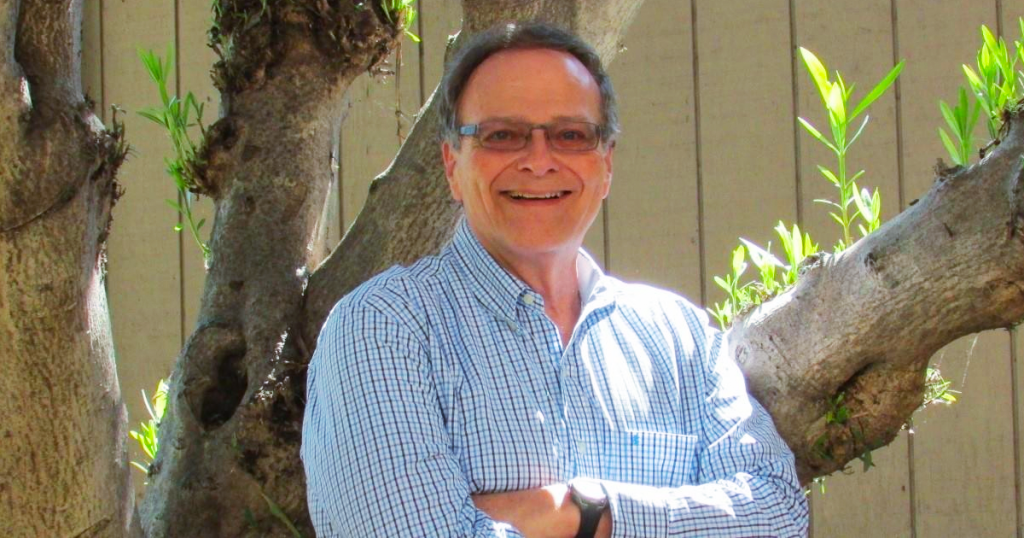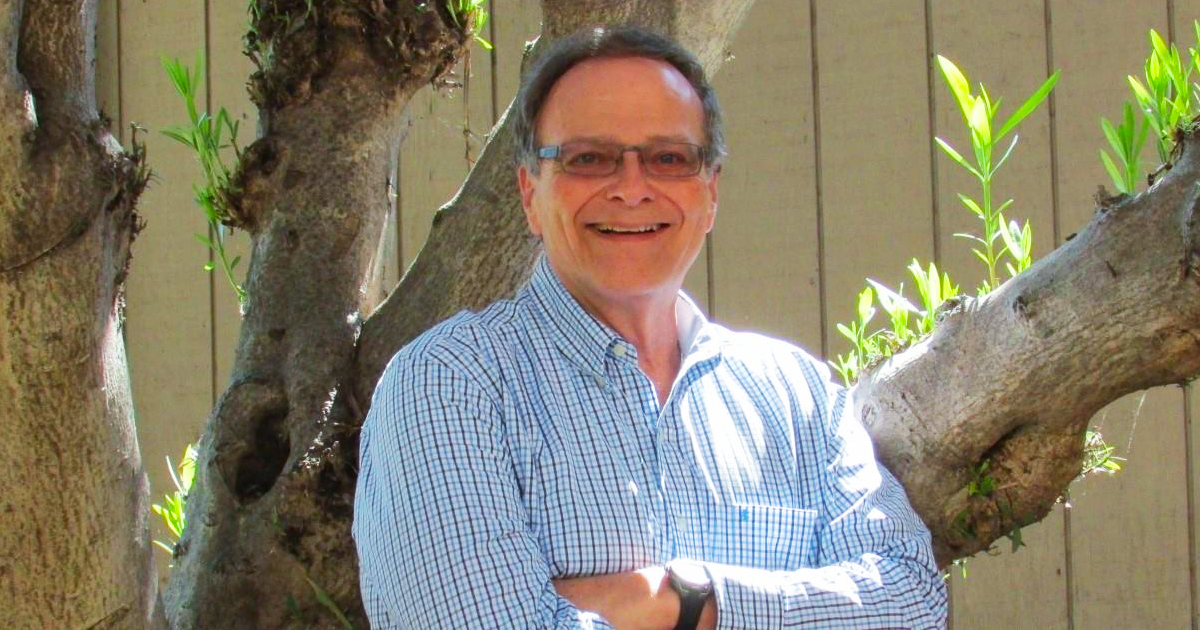Love Is the Key, Both on Earth and In Heaven


by Richard Keys
As a teenager, I attended a high school of 2000 students, but there wasn’t a single gay person in the entire school. That’s because in those days sexual orientation didn’t exist. Homosexuality was a choice, a sin, and the only public examples were effeminates or deviants who were killed at the end of the movie because of their moral lifestyle. So all gays were deep in the closet. Add to that my Mormon upbringing, and I lived a “do-it-yourself conversion therapy:” Growing up attracted to guys, but convinced it was a moral temptation having nothing to do with sexuality. It was as if Satan was saying, if I can’t tempt you with girls, I’ll tempt you with guys. Even though my parents had no idea of my moral tug-a-war, they used their conservative, manipulative guilt and shame to keep me on the right course, making things even worse. So the Church lifestyle became a place to fight my battles and try my best to be the good Mormon boy everybody expected.
My parents and I joined the Church when I was seven, and I immediately began the strait-and-narrow path of Mormonism: Total activity, four years of seminary, then BYU, a mission to Germany, temple marriage, career, and kids. Through it all, I kept resisting the “moral temptation” while still making no connection to sexual orientation.
At a very low point in my midlife, I felt like a total failure, as a husband, a father, a provider, and a child of God. One June night after the rest of the world had gone to sleep, I sat in my family room pouring out my heart to my Heavenly Father about how I felt and how much of a burden I must be to Him, listing every failure I could think of. At the end of the list, I distinctly heard a strong, calm voice in my mind say, “I love you.” I said, “No, You don’t, You can’t possibly love me,” and I went down the list again in the same order. Again I heard, “I love you.” Then I got angry and said, “No.You.Don’t.Love.Me,” and I went down the list again, this time faster and more emphatic. Still I heard, “I love you.” I tried a fourth time but broke down crying half way through the list and couldn’t finish. Again He said, “I love you.” Then He added, “I don’t always trust you, but I have always loved you, I love you now, and I will always love you.” Suddenly, it all made sense. I never considered trust as a factor. By separating that from love, it was easy for me to believe my Heavenly Father and my Savior loved me. God loves us because He is good, not because we are good. If God only loved us when we are good, He’d never love us. But trust is something within my control. Make a promise, then keep it. Make another promise, then keep it. Make a bigger promise, then keep that. Soon, people, including God, see you as trustworthy—worthy of their trust.
For the next 12 weeks, He and I met two to three nights a week, two to three hours a night, and He personally taught me as we literally carried on a conversation about who He really is, who the Savior really is, what the Atonement really is, how it personally applies to me, who I really am, who I was in the pre-existence, what role I played there and what my personality was, what talents I brought with me that I inherited from my heavenly parents and what I added while here on earth. But I never would have believed or accepted any of that if He hadn’t broken through the barrier in my mind that He didn’t love me because I wasn’t worth loving. Love is the key, both on earth and in heaven. At the end of 12 weeks, it suddenly stopped, as if He said, “OK, you’re caught up now, you’ve got enough on your plate, so go practice what I gave you.”
Now fast forward twenty years. I retire from work, the next year I go through a divorce, and the year after that—after the marriage, after the divorce—I suddenly realize I’m gay. I was pleasantly surprised I felt no moral temptation tied to it. There was only relief that all the pieces of the puzzle finally fit together and made sense to me. I prayed about it and found peace and acceptance on both sides of the veil, and I could finally comprehend and accept it. But suddenly my entire life changed. My mom once told me the greatest sin wasn’t murder—it was divorce. Being divorced was bad enough in a church that preaches nothing but family, family, family, but being divorced AND gay seemed even worse. I didn’t even recognize the guy in my patriarchal blessing, and I needed help. Before I came out, I got a priesthood blessing from the stake patriarch, using my divorce as the reason for my request. In the middle of the usual typical guidance, he stopped, paused, and then said, “Richard, the Lord wants you to know that He trusts you.” I was stunned. I’d never heard that in a priesthood blessing before. The line about the Lord loving you is stated so often it’s become a cliché, but never about Him trusting you. Suddenly I thought back to that summer so long ago when He said He didn’t always trust me, and now He says He does. A Mormon who’s gone through a divorce and then realizes he’s gay—Now He trusts me. That was both humbling and empowering.
From that point, I’ve changed from a conservative, judgmental, by-the-book introvert to an outgoing guy who looks for the child of God in everyone, accepting and loving of all the underdogs in life, and leaving judgment to God because it’s in His job description, not mine. From another priesthood blessing that was very specific, I’ve been led to places, including Affirmation, where I’m able to use my talents of writing, public speaking, music, and my sense of humor (my silly critters) to help people understand what it means to be gay and Mormon, and what it doesn’t mean, and He wants me to remain in the Church where I’ll be most effective in carrying out this work. Although being gay and Mormon can be troubling, even traumatic at times, the Lord has given me a personalized plan to be a part of my LDS tribe and my LGBT tribe that He can sustain and that satisfies all my needs.
As a part of that plan, I came out to my ward and stake leaders during a temple recommend interview without a problem. A few months later, I came out to my ward during a sacrament meeting talk about Christlike love, and things seemed well for a while, but then the leaders began distancing themselves from me, a subtle shunning that created an unsafe place for me. After much prayer, the Lord led me to another ward 90 miles away that is much more accepting, inclusive, progressive, all that I could hope for and much more, and I’m able to drive 180 miles round trip every Sunday and be a totally out and active member of the ward. Although the Church’s overall policies and culture can be troubling, even hurtful and painful sometimes, my new ward and the Lord seem distant from that and have given me the love, trust, and total acceptance that helps me through those tough times. I’ve never been happier than I am now, never known who I really am more than I do now, never felt closer to my Heavenly Father, my Savior, and the Holy Ghost. That’s not everyone’s journey, and that’s totally okay, but it’s mine, and I’m grateful to have found it.
Rich Keys is a regular contributor to the Affirmation website and writes a monthly post for his Affirmation blog series Two Degrees off Center.
This article was submitted by an Affirmation community member. The opinions expressed are wholly those of the author and do not necessarily reflect the views of Affirmation, our leadership, or our staff. Affirmation welcomes the submission of articles by community members in accordance with our mission, which includes promoting the understanding, acceptance, and self-determination of individuals of diverse sexual orientations, gender identities and expressions, and our vision for Affirmation to be a refuge to land, heal, share, and be authentic.
I understand that members in a ward have a testimony of the gospel and their faith. But not to the point one should travel 160 miles round-trip. The people in the church won. A least that’s how I see it.
Hi Rich
I am very glad you are in our ward. I heard the first time you bore your testimony, and credited Judy Finch as your instigator (sp?) to influence your decision to come to our ward. She was instrumental in our joining the church 50 years ago as an example to us. I am so glad you are in our ward. i thought your musical selection at the talent show a couple of years ago was so funny. You DO have a good sense of humor. Your words were very interesting in your history of your journey.